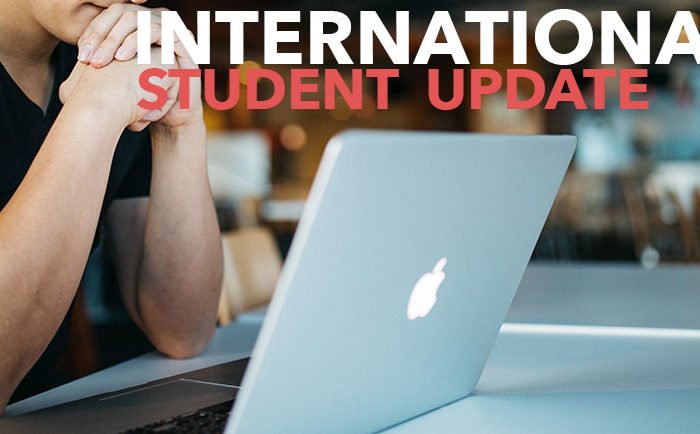Today’s blog is aimed at those candidates who are about to apply for an ITA (Invitation to Apply) and those who have received the ITA but still have some documents pending.
THE BASICS:
To create an Express Entry profile, a candidate needs to provide corresponding proof of his/her language ability, relevant work experience proof of education level etc. Once the candidate meets the requisite CRS points for the respective draw, he/she may be issued an ITA. You can check your CRS points here at https://www.cic.gc.ca/english/immigrate/skilled/crs-tool.asp . The documentation checklist for every candidate varies based on the candidate’s circumstances, nationality, civil status among other factors. However, all applicants need to submit copies of the following after getting ITA:
- Valid Passport
- WES (proof of education from the country of origin)
- Birth Certificate
- Language Test Results
- Work Experience Documentation
- Police Clearance Certificate(s)
- Upfront medical receipt
- Photographs of principal applicant (and family members)
- Canadian Education documents
- Status Documents
Even from the short above-mentioned document checklist, some paperwork, particularly those pertaining to work experience and background checks from the respective country of origin can prove to be a daunting task especially now during the pandemic.
The work experience letter from your country needs to be in the Canadian format for it to be accepted by the CIC. It should include: your full name, job title, joining and end dates of employment, wage (either hourly, bi-weekly or monthly), number of hours worked in a week along with the roles and responsibilities handled during your tenure. Unless these details are mentioned in the letter, it would be hard to classify the job title under the NOC codes and getting the necessary CRS points. To find your job’s NOC code, click on https://www.canada.ca/en/immigration-refugees-citizenship/services/immigrate-canada/express-entry/eligibility/find-national-occupation-code.html.
If you were an international student, who has completed his/her course in Canada and is currently on your work permit (nearing one year of experience), your recommended course of action is to obtain your WES, IELTS/CELPIP, PCC and get your medicals done as quickly as possible. The current updates and links for the same are provided towards the end.
Depending on the situation, any of the following documents (not all) may also need to be submitted and candidates are encouraged to gather as much of these as possible at the earliest:
- Translations to English or French(if documents are in a language other than these)
- Copies of work contracts and/or pay stubs
- Documents relating to income taxation
- Canadian Education Credential OR Educational Credential Assessment (ECA)
- Official transcripts of post-secondary education study program courses taken
- Secondary education documents
- Original letter from a Canadian employer indicating an offer of arranged employment
- Proof of family relationship(s) in Canada
- Proof of settlement funds
- Legal documents showing changes in name or date of birth
- Marriage certificate(s)
- Signed Statutory Declaration of Common-law Union and documents attesting to cohabitation for a period of at least 12 months
- Divorce or annulment certificate(s)
- Death certificate(s) for former spouse(s) or common-law partner(s)
- Children’s birth certificates
- Adoption papers
- Proof of full custody for children
- Travel documents (non-passport)
- Certified copy of a certificate of qualification in a skilled trade occupation issued by a Canadian province or territory
- Letter(s) of explanation
- Affidavit
All the required documents have to be uploaded and submitted electronically. As of now, candidates who have received the ITA are provided with 90 days to complete their applications. Do check your ITA carefully to know your deadline.
RECENT UPDATES:
-
WES:
For the IRCC to acknowledge your proof of education back in your country of origin, it must undergo an evaluation from WES. It can take anywhere from 1-3 months to receive your completed WES evaluation. So, it is advised that you start applying for it at the earliest to increase your chances of entering the Express Entry pool early. Find out more about WES on https://www.wes.org/ca/about-wes-credential-evaluation/. If the person has done a University education in Canada, then WES is not required.
-
PCC:
The PCC is a certificate that serves as a background check for candidates. You need to provide a PCC from your country of origin as well as all other countries you have resided for more than 6 months in the last 10 years including one from here in Canada. Do check with your country of origin’s consulate website to obtain PCC at the earliest. If you are from India, you can apply for your PCC through https://www.cgitoronto.gov.in/page/police-clearance/.There was a halt on appointments for obtaining PCC (Police Clearance Certificate) in Canada as well recently. The good news now is that the RCMP (Royal Canadian Mounted Police) has made it possible to get PCC through some of its locations. You can act upon this opportunity and schedule an appointment through https://www.f1fingerprint.ca/.
-
Medical Evaluations:
With the provincial lockdowns easing, now more and more locations are reopening to accommodate the demand for medical evaluations. Only a panel physician approved by the CIC can do this for you. Find out your nearest CIC approved panel physician through https://secure.cic.gc.ca/pp-md/pp-list.aspx. If you are going for the medical evaluation prior to getting an ITA, you may go ahead with an upfront medical exam. You can’t go for an upfront medical exam if you are being sponsored as a spouse, parent or child. If you already have an ITA, you would be asked for your IME (Immigration Medical Exam) number when scheduling an appointment.
If you live in the GTA, you can book an appointment for getting the Upfront Medical exam from https://www.completeimmigration.ca/site/contact-immigration-medical-exam-brampton-gta as it is currently operating.
-
Language Test Results:
The most ubiquitous language proficiency test that most candidates opt for is the IELTS. Due to the ongoing Coronavirus outbreak, most test takers have found that their exam dates got either cancelled or shifted to a later date. While there are no dates set in stone, some candidates still do manage to attempt the exam during these trying times. You can get more than 135 CRS points just by cracking the language exams. What most candidates don’t realize is that the IELTS can also be taken as a Computer-based test which can give them the results back in just 3-5 days. Also, it offers more dates currently than its paper-based counterpart. You can book a date for IELTS on https://ieltscanadatest.com/take-ielts/test-dates-2019/.
Alternatively, the IRCC also accepts language test results for CELPIP as well. Compared to the IELTS, a majority of candidates have found CELPIP to be easier and shorter, along with more flexibility with the bands. To learn more about CELPIP, visit https://www.celpip.ca/.
If you feel that you may need help in preparing for either CELPIP or IELTS, contact our agency at (519) 954-1526 Monday to Friday from 11 am to 4 pm.








